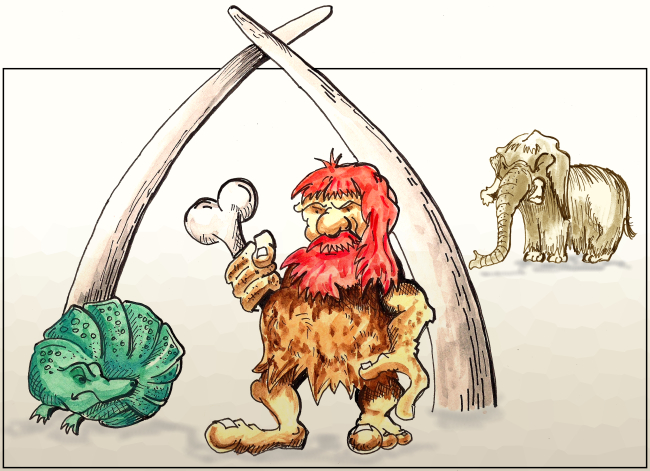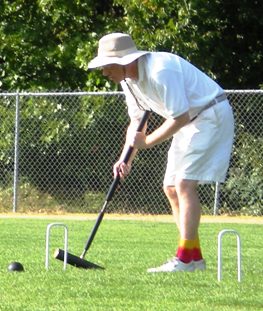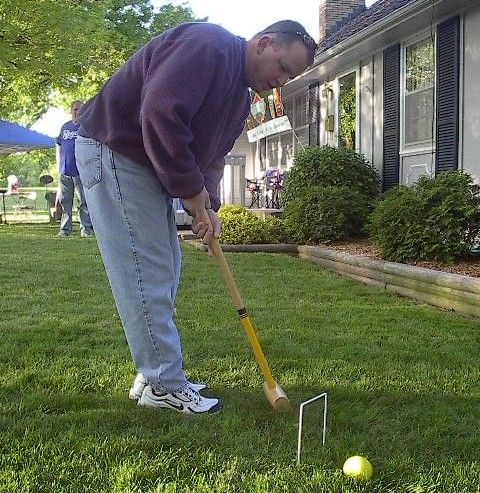As we prepare to close out an amazing year for the sport, Croquet Network is excited to present the 2025 Top 25 Croquet Power List on this New Year’s Eve. There was a lot of activity on the site in 2024 as we again saw new records for traffic. At the top of the list, the story remains familiar, as Dave Trimmer Mallets continues to widen its commanding lead over the competition. Meanwhile, the US College Croquet National Championship retains its stronghold in the runner-up position, hinting at its potential for even greater prominence with expanded coverage. As you explore the list, you’ll find it not only highlights the key moments of 2024 but also points to exciting opportunities for the sport’s future.
Read MoreCroquet Network Top 10 News Articles for 2024
Happy Holidays to all of the players and fans of the greatest sport in the world from Croquet Network. To celebrate the season and to wrap up 2024 I am pleased to present our annual Top 10 Croquet News Articles for 2024 based on total readership.
Read MoreWho Wrote "Croquet, as Played by the Newport Croquet Club"?
Blamire's Unofficial History of Croquet

John Blamire submitted this satirical piece for the USCA's Croquet News magazine this past fall. As space has become increasingly tight in each issue, this turned out to be too long to make the cut. After an apology, I offered to post the piece on Croquet Network and John agreed. Enjoy -- Dylan Goodwin
Excerpts from the Unofficial History of Croquet
Part One: The Early Years
by - John “the Professor” Blamire
Before Dawn.
Croquet was a popular sport long before the dawn of recorded history which makes its origins hard to find and interpret. However the discovery of mammoth tusks arranged in the form of hoops or wickets starting at the time of the Cromagnons in the Pathetolitic era gives us our first clue as to when the game first started and how it got its name. “Magnon” means "player" and “Cro” means "the game", so Cromagnons were "players of the game" and they took it very seriously.
Billy Bob Breeden Interview Excerpts
 Breeden during the 9W doubles championshipThis is a follow up to yesterday's post on George Cochran. During interviews for the November issue of the magazine, I had interesting conversations (via e-mail) with both Billy Bob Breeden and George Cochran on nine-wicket that I wasn't able to fit into the magazine story. Today I'm posting the discussion I had with Billy Bob. Here's a link to the conversation with George.
Breeden during the 9W doubles championshipThis is a follow up to yesterday's post on George Cochran. During interviews for the November issue of the magazine, I had interesting conversations (via e-mail) with both Billy Bob Breeden and George Cochran on nine-wicket that I wasn't able to fit into the magazine story. Today I'm posting the discussion I had with Billy Bob. Here's a link to the conversation with George.
Dylan: Let's start with your general impression of nine-wicket play compared to six-wicket croquet, now that you have two of these national nine-wicket tourneys under your belt.
Billy Bob: One of the things that I find harder about 9W versus 6W is the long grass. It is hard to control your breaks, but it can be done. Now on the flip side, sometimes it is hard to control your balls around the wickets on short grass whether it is 9W or 6W. Just a little hit and it may give you a tough shot on a tight wicket. I know from playing at the 9W nationals two years in a row that both years the field conditions were great for the tournament. We had a lot of break play and some of them were long breaks.
Dylan: Do you see nine-wicket as maybe being able to provide organized croquet in areas where courts are not available? In other words, is a nine-wicket club possible?
Billy Bob: Yes I do, right now there are several organized croquet club in Missouri. Just in my area, I can think of a few -- the Stanberry, Mo croquet club, they have a sand court, in the middle of their town that was built in 1973, and it is in the local park. The Chillicothe Croquet Club just plays in the local Chillicothe Park every third Sunday during the summer, I think they told me two years ago, they had been playing for 43 years, so they have had organized croquet for 45 years. The Trenton college also has a local tournament held on their campus every year. In Albany, Missouri, the local community club is trying to organize and build a court in their park. Years ago almost every little town in American had some kind of croquet being played in their local parks. Our biggest challenge is how to get our young people out of the house and onto the croquet course. I think that we all should contact organizations like local Boy Scout, Church groups, athletic directors and 4H groups and start organizing youths at an early age. Maybe even offer class in the local parks free to teach croquet.
Dylan: Wow, I had no idea there was that much croquet activity anywhere close by. Are any of those players in that region participating in the national tournament?
Billy Bob: I have tried for at least four years to get them to my tournaments. The only success was an older man from Chillicothe after I had played with them a couple of times on their sand court. He showed up for two years, but I think his age (88) was making it hard for him to hit the balls in long grass. He likes to play roquet -- an American variant of croquet played on a hard, smooth surface. There are about twelve players in Stanberry, Missouri I’ve been working on for two years, but I think the name “Nationals” scare them off. They already play both two-ball singles and doubles.
George Cochran Interview Excerpts
 Cochran at 9W NationalsDuring interviews for the November issue, I had interesting conversations (via e-mail) with both Billy Bob Breeden and George Cochran on nine-wicket that I wasn't able to fit into the magazine story. Today I'm posting the discussion I had with George and I'll follow up later with Billy Bob's comments.
Cochran at 9W NationalsDuring interviews for the November issue, I had interesting conversations (via e-mail) with both Billy Bob Breeden and George Cochran on nine-wicket that I wasn't able to fit into the magazine story. Today I'm posting the discussion I had with George and I'll follow up later with Billy Bob's comments.
Dylan: Now that you have two years in for this event, how about we start with your impressions of the nine-wicket game and playing on the long-grass? Obviously, it would never compare to six-wicket, but does it offer appeal as a change-up type event or maybe on some other levels?
George: Your phrase "Obviously it would never compare to the 6-wicket game" would indicate that you believe the 9-wicket game to be an inferior version of croquet. I disagree. I love playing both American rules and International rules 6-wicket croquet, and I equally love playing 9-wicket croquet. The backyard game is neither better nor worse than croquet on groomed courts, but it is very different, and a person that ignores those differences is probably playing the game badly.
The first difference is in availability. Flat courts with golf-green grass are very expensive to both build and maintain, and so there are vast regions of the U.S. with very few such courts available. For example, there is not a single groomed croquet court in the entire state in which I live. But a backyard game can be set up anywhere, anytime, with relatively cheap equipment, and provide hours of fun. When I visit friends or family, we could set out some wickets and play, talk and drink beer in the back yard. I went to my high school class reunion a few years ago, which was held at a picnic pavillion next to a lake in a state park. There was a 9-wicket croquet court set up in the grass next to the pavillion and everyone had a blast knocking balls around.
The second difference is that the 9-wicket game is generally an aggressive and wide-open game, even more so than the Association game. Aunt Emma is a losing strategy in a 9-wicket tournament, as long as your mallet is weighted appropriately for the balls and grass on which you're playing. This is because the wickets are wider, making it easier to get through them from a distance and from an angle, and also easier to peel a dead ball through. Because there's no relief from wiring and the vagaries of the ground make long roquets uncertain, a player who has control of the balls can literally leave the opponent with no shot at the end of each and every turn. A well-played 9-wicket game will have a very aggressive early attack or rout, even if it results in a lot a deadness, because you can leave the opponent with no shot, it is easy to get clean, and gaining contol of the balls is paramount.
For players who are at the stage of learning various croquet shots (roll and split shots), the 9-wicket game offers a much more rewarding game in which to try those shots out. The distance between consecutive wickets is shorter and the angles on split shots are not as severe. And if the shot is off slightly, you generally still have a makeable wicket shot because of the generous hoops. The result is that an improving player can often run an all-around break and set a leave in a 9-wicket game, while the same player in a 6-wicket game would make a couple of hoops and then break down dead and be forced to sit for a long time. My club runs a "Leisure Class" on croquet, and we use the 9-wicket game for all but the last class-day for this reason...the 9-wicket game can be less frustrating.
Of course, there are more randomizers in the backyard game. The ground can be bumpy or slope off, the grass is not uniform, sometime balls can be defective. A type-A personality can find these random variations aggravating. I just accept them as being a part of the game that makes it interesting, and try to play the lie as best I can. I often misjudge slopes with soft shots. When I have these misses, I just try to make a mental note of the location, the shot and the curve and try to get better at it. At least everyone is playing on the same ground and trying to get through the same wickets.
Very slow or very long grass can be frustrating, but that's not the fault of the grass but more the fault of not having the right mallet at the game for the conditions, and for failing to adjust your game strategy to fit the speed of the lawn. If you are flexible enough to adjust your game for the types of shots that you can actually do with the grass, balls and mallet that you are using, then the "slow" game can be a lot of fun too. Not better or worse, just different.
This whole discussion reminds me of the unrelated issue of the relative merits of golf croquet. There are some in the croquet world who dismiss golf croquet because it has no croquet shots. Someone who gets all of their enjoyment from croquet shots would probably not get much pleasure shooting golf croquet. But I find the game fascinating, frustrating, and a hell of a lot of fun. Strategy in golf croquet is deep and nuanced. I just wish I could shoot better. The game really emphasizes the kinds of shots at which I'm weak. Compared to "regular" croquet, it is not better or worse, but it is definitely different.
Dylan: Do you see nine-wicket as a way to build organized croquet play in areas where six-wicket courts are not available? Do you think it is the kind of game that you could build a club around? You mention that your club uses nine-wicket for teaching, what kind of field do you use?
George: Absolutely! The club in Baton Rouge played only 9-wicket croquet for two years before we even knew that the USCA existed. We all knew the 9-wicket game and had never heard of any other variations. We played (and still do) in a public park on long grass that's mowed fairly short, on a 2/3 size court. There are no golf-green grass courts in Louisiana. Just recently a couple of guys coming off the nearby golf course stopped and watched us, and then got in a game. It turns our that they have been hosting a regular Thursday night cutthroat 6-ball 9-wicket game in their backyard for several years, as kind of a neighborhood party. After playing with us a few times they just recently joined the USCA and are turning into croquet fanatics. Would they have been as interested in joining us if they hadn't already been playing 9-wicket croquet regularly? Probably not.
The 9-wicket game has three things going for it:
1) Everyone knows some variation of it
2) You can set it up anywhere, and
3) For a serious improving player, roll and split shots are more rewarding with less downside when they go bad, and it's relatively easy to score multiple hoops in a turn.
For these reasons I believe it makes a great game for teaching skills with croquet shots and for recruiting people into the serious side of the game.
Death of the One-Ball Game?

Future of the Yard Game
Here in Kansas City both of the main clubs have been focused on playing one-ball (cutthroat) croquet. Last fall Greg Clouse won the Missouri Croquet Association's (MCA) final tournament with an opening 16-wicket run. The run itself is not uncommon for the MCA, but it was a huge win for Clouse. Over the winter though, I thought about how that 16-wicket run really presents the main problem for the cutthroat game. Ultimately, the blue ball is facing the absolute possibility of no chance to win. Red is really in pretty rough shape as well if blue plays the proper defense. So I followed up with Clouse and laid out that concern.
"This is and has been a concern of ours," he said. "It is no fun (if you're not the one running the course) to watch someone run the course especially early in the game. In fact, others may be hurt by one person's, either mistake or non-experience."
He went on to say that the MCA had already decided to address the issue and was planning on playing some standard partners nine-wicket and singles (one player plays two balls) tournaments for the 2008 season.
This took the air out of me as I've always thought the one-ball game was a lot fun. You can accommodate six players on one field and the whole event takes on the feel of something like a bike race. Yeah some good fortune can be involved, but if you are on your game you'll always get your chance. Lately though, I've been getting a sinking feeling that as more players in my club develop the ability to go on that big run, ultimately it's a game of chance.
Bob Kroeger pretty much explained this for me on the phone a few years ago as we discussed some rules issues on the nine-wicket game, but I buried my head in the sand. Having the MCA change games brought it home for me.
At this point though, my club plays on backyard lawns, so that tends to throw some curve balls at the better players -- disrupting runs at extremely inopportune times. We can forge on, but I've started to work on a contingency plan -- just in case. I've scratched out a few rule changes to consider that would might help break up the potential for a 16-wicket run and preserve the one-ball game:
- Make the standard field 136' and extend the area between the stakes and respective wickets 24 feet. Putting the starting line at 20'. I thought this might mix things up at the beginning and possibly create some complications at the turning stake. Still, good players could handle that one.
- Put the starting line on the sideline (roughly perpendicular) to the current starting line (ala golf croquet). Again, this would mix things up a bit at the beginning as it would be impossible to score on that first shot.
- No bonus for the turning stake. I'm not sure the effect this would have, but it would be impossible to run the field in one turn. It might have the effect of creating two short games.
- Limit to only four players. Part of the problem is there are so many balls available. It takes a little more skill to string together a run with only four balls on the field. Also, taking a few of those balls off of the field reduces the "other player" mistakes that leads to the opponent win. I always view it as there is you, the guy with the ball and the four others. This means there are just two others. Still, part of the fun is emerging from a pack of six players.
The best solution really may be as I suggested above -- stay off of the smooth turf for cutthroat croquet. And perhaps for me it's time to let go of my obsessive attachment to the backyard game. It may be a signal to move on to singles and partner play on the nine-wicket course (plus golf croquet) and learn to appreciate the cutthroat game for what it is -- a great social contest for the backyard that provides a good base for croquet skills and strategy.
